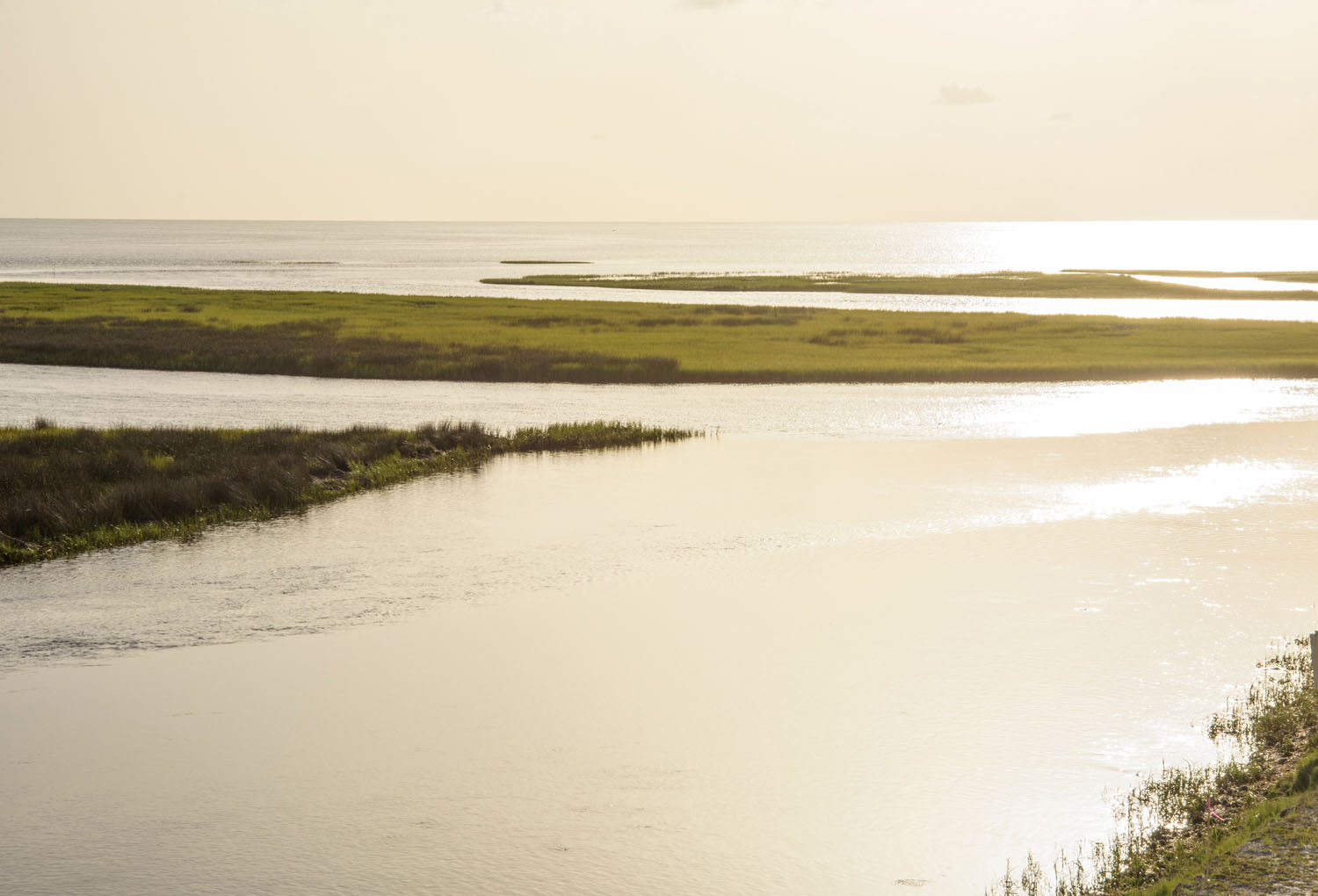
5 minute read
Sea Change
by UF_CLAS
By Douglas Ray
Growing up in Pensacola, Rebecca Burton had a front-row seat to the Gulf of Mexico, where the power of the American Sea to build communities over the decades and to wipe them away in a season has been unfolding since long before the first Europeans arrived on its shores.
She saw how development and industry could harness the beauty and bounties of the Gulf while devastating its ecology. This led her to an early career in environmental journalism and science communication. She founded The Marjorie, a Florida-based reporting nonprofit focused on environmental justice. She also led communications for the Florida Sea Grant and for the UF Thompson Earth Systems Institute, organizing environmental leadership experiential learning programs for students.
Recently, Burton was tapped to lead the University of Florida’s Gulf Scholars Program. Starting this fall, the program will equip undergraduates with the knowledge and skills to create solutions for a healthier Gulf of Mexico and more vibrant inland communities.
Burton’s personal connection to the Gulf runs deep. Her grandfather and great-grandfather were Gulf fishermen who depended on its resources for their livelihoods.
“Growing up in Pensacola, I learned to appreciate the beauty of this waterbody and its ability to provide for our community — and the nation,” Burton said. “But I’ve also experienced firsthand many of the challenges facing the region.”
In 2010, the nation’s reliance on the Gulf of Mexico made international news when an explosion on the BP Deepwater Horizon oil platform killed 11 people and led to the largest oil spill in history. This catastrophic event highlighted the urgent need for comprehensive solutions to the complex environmental, health, and social challenges facing communities along the Gulf.
“I’ve lost my home in a hurricane. My middle school was shut down due to its location next to a toxic waste site. And I remember crying with a group of friends when news of the oil spill broke as we savored what we thought would be our last Gulf oysters,” Burton recalled.
These experiences motivated Burton to become an environmental reporter. She sought to better understand these challenges, explain them to her family, and explore possible solutions while maintaining hope.
“I think those of us who grew up on the Gulf have a strong sense of place, but sometimes the challenges lead us to leave,” she said. “I’m so excited for this new role to help students develop a shared mission to ensure its ability to support future generations.”
Now with criminal settlement funds from the companies found responsible in the BP Deepwater Horizon oil spill, the Gulf Scholars Program aims to prepare UF undergraduates from a variety of disciplines with the knowledge and skills to imagine and implement innovative solutions for a healthy and thriving Gulf for generations to come.
UF was one of five universities recently selected as a host institution for the third cohort of the Gulf Scholars Program, a five-year, $12.7 million pilot program funded by the Gulf Research Program of the National Academies of Sciences, Engineering, and Medicine. Last fall, UF President Ben Sasse awarded an additional $414,000 in strategic funds from the state legislature to bolster the $475,000 grant.
“The Gulf Scholars Program provides an opportunity to reach undergraduate students — many of whom have home ties to the Gulf region — and engage them in rigorous education and training on issues that directly impact their own communities,” said Karena Mothershed, senior program manager of the Gulf Research Program’s Board on Gulf Education and Engagement.
“We hope this program inspires students to envision a future in the Gulf region and work to make it an even better place to live, work, and thrive,” she said.
The program will include Gulf-focused academic courses, experiential and place-based learning opportunities (research, internships, field excursions, etc.), faculty-mentored Gulf Impact Projects, and public programming. Each of these components will culminate in a Gulf studies minor or certificate. With its home in the Bob Graham Center for Public Service, the UF Gulf Scholars Program will place effective civic engagement, public service, and leadership at the forefront of its programming.
“The Bob Graham Center for Public Service is delighted to house the Gulf Scholars Program. As governor and senator, Bob Graham sought to understand the complex relationships between Florida’s climate, landscape, waterways, and marine life. He implemented policies to restore the Everglades, and has long advocated for Florida’s manatees,” said Matt Jacobs, director of the Bob Graham Center for Public Service.
Faculty may sign up to hear about funding to develop related courses or host experiential learning opportunities. Students can expect to register for these classes as early as Spring 2025. More information about experiential learning and internship opportunities and support for Gulf Impact Projects will be announced in the coming months.
“The challenges facing the Gulf and its communities are messy, and we will rely on a wide variety of skill sets to adapt and plan for the future,” said Burton, the program coordinator.
Dive into the Gulf Scholars Program gulfscholars.bobgrahamcenter.ufl.edu





